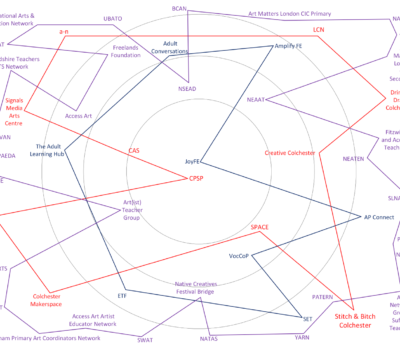


Our team sorts through all blog submissions to place them in the categories they fit the most - meaning it's never been simpler to gain advice and new knowledge for topics most important for you. This is why we have created this straight-forward guide to help you navigate our system.


And there you have it! Now your collection of blogs are catered to your chosen topics and are ready for you to explore. Plus, if you frequently return to the same categories you can bookmark your current URL and we will save your choices on return. Happy Reading!
As educators, we always want what’s best for our students. The job of a teacher is a valuable one, and it’s thanks to us that many young people are inspired to pursue their interests in higher education after leaving school.
Besides the subjects that are part of the school curriculum, there are other lessons we can offer our students. One of those is how to manage their finances throughout their time at university. But first, we need to understand how the system works ourselves – in this article, we share three things that teachers should know about student loans.

As teachers, we’re used to talking to our soon-to-be leavers about applying for student loans, but rarely do we get a chance to discuss the options available if a student isn’t eligible. The truth is, not every learner will be entitled to a government loan, so it’s important to know how we can best support students who don’t get the funding they need – such as international students or learners who have previously taken out a student loan.
For the most part, students who are UK nationals should be entitled to an undergraduate student loan so long as it’s their first time enrolling on a higher education course. Those who aren’t eligible can still apply for a private loan, scholarship or degree apprenticeship.
Applying for student finance is just as important as applying for a place at university, and should be done around the same time (the student loan portal tends to open slightly after the UCAS one). Some students might think they have to wait until their spot at university is confirmed to apply, but this isn’t the case. In fact, there are strict deadlines that need to be met when applying for a student loan to avoid delayed payments.
As it stands currently, students can apply up to six months before the date their course commences. As educators, we should encourage students to get their applications in early – if their plans change, they can amend or cancel their loan application prior to the course start date.
Once your students have graduated from their university courses, they’re on their own. It’s unlikely their university will educate them on the importance of keeping up with their loan repayments, but you can prepare them as best you can before they leave sixth form or college.
Students may not be required to repay their loans at the same rate as their peers, so it’s best to educate them on the five different plans for repaying undergraduate loans. While many students will have their repayment fees taken out of their salary automatically, it’s worth mentioning that those who work for themselves or move abroad will be responsible for making the required repayments themselves.
Almost all educators will have some experience with the way the student loan system works. Because it’s so familiar to us, we may forget that there are students who won’t know the ins and outs of the system. If we want to give our students the best possible start in higher education, we should do our best to prepare them for what to expect, including the financial implications of taking out a student loan.

The author

Read more

Read more

Read more

Read more

Read more

Read more

Read more

Read more


Are you looking for solutions? Let us help fund them! Nexus Education is a community of over 11,000 schools that come together to share best practise, ideas and CPD via online channels and free to attend events. Nexus also offers funding to all school groups in the UK via nexus-education.com


Established in 2011, One Education is a company at the heart of the education world, supporting over 600 schools and academies. Our unique appeal as a provider is in the breadth and synergy of the services we offer, supporting school leaders, teachers and support staff to achieve the best possible outcomes for their pupils and staff.

School Space is a social enterprise that has empowered schools for over 12 years through their profitable and hassle-free lettings services. So far, they’ve generated over £5 million in revenue for education, helping to connect over 200 schools with their local communities.


Unify is an online sales and marketing tool that allows users to create tailored personalised documents in moments.


There’s nothing special about the energy we sell. In fact, it’s exactly the same energy as all our competitors provide. But there is something special about the way we do it. Where others complicate the process, we simplify it. Where others confuse customers with hidden terms, we’re an open book. And where others do all they can to make as much money from their customers as possible, we do all we can to make as little. Everything we do, we do it differently. Our customers are a privilege. One we’ll never take advantage of.


Securus provide market-leading monitoring solutions to safeguard students on ALL devices both online and offline. We also offer a full monitoring service, where we carry out the monitoring on behalf of the school, freeing up valuable staff resources. From the smallest school to large MAT groups, Securus offers safeguarding protection for all!


Bodet Time offers dedicated solutions to education through lockdown alerts, class change systems, PA and synchronised clock systems. Improving time efficiency of the working and school day; ensuring safety through lockdown alerts; increasing communication with customised broadcast alerts.


Robotical makes Marty the Robot - a walking, dancing coding robot that makes programming fun and engaging for learners as young as 5. Our robots come with a full Learning Platform that has complete teaching resources, to make lesson planning a breeze.